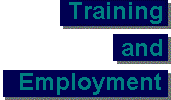 |  |
 | What are Sponsorships and Scholarships about? |
|
Sponsorships and scholarships are schemes designed to offer financial support and some work experience to students undertaking first degrees, post graduate degrees, HNDs and other courses. |
 | What exactly is Sponsorship? |
|
Sponsorship is a contract, a legally binding written agreement, between a student and an employer. Sponsorship requires the student to attend a particular degree course (or similar). Some employers allow individuals to make their own choice of course; others sponsor to specific courses relevant to their field of work.
Minimum standards of achievement are set by most employers that allows them to withdraw sponsorship if those standards are not met.
In return, sponsored students are paid an allowance decided by the employer, though these can be paid in many different ways. In some cases sponsors pay a salary from day one of a student starting their course. It is worth noting that sponsorship payments by employers or in relation to the sponsorship of up to £3865 pa is disregarded for grant means testing purposes.
Training and work experience is provided by sponsors normally during vacation periods.
|
 | What do employers look for? |
|
Employers are interested in students with good academic achievements, eg A levels or HNC but not to the exclusion of other personal qualities such as the potential to progress to managerial positions.
Recruitment procedures and the selection techniques used for choosing sponsored students are normally quite rigorous and lengthy. (See selection techniques) |
 | Why do firms sponsor ? |
|
The chief aim is to attract able, young people as a long term investment. Sponsorship gives an employer the opportunity to develop a young person's potential to the advantage of the company.
Through work-based training programmes students gain an in-depth knowledge of a company's philosophy and are able to learn more about the company than is possible through normal training methods.
Sponsorship is used where firms have difficulty recruiting sufficient numbers of high quality people.
|
 | What are the main areas for sponsorship? |
|
Engineering courses are prime targets for sponsorship; around 30% of electrical or electronic engineering students are sponsored in some way compared to around 5% of Civil Engineers.
The Armed Forces and some Banks continue to offer sponsorship although their requirements vary from year to year. |
 | Are there any restrictions? |
|
Most sponsoring companies do not make it a condition that upon graduation a service period must be met, although this consideration should be clarified at the time of offer. |
 | What types of courses are there? |
Mixing academic study with work experience on a sandwich course basis is perhaps the most common form of sponsorship. These courses are of three types:
- Thick sandwich: Known as 1:3:1 = (1st yr - with sponsor, 3 yrs - on degree course, 4th yr -with sponsor)
- Thin sandwich: Known as 2:1:1 = (3rd yr - with sponsor)
- Extra thin sandwich : consists of 6 monthly alternating periods between course and sponsor
|
 | How do you apply for apply for sponsorship? |
|
Sponsorship enquiries are best made about a year before a student's course starts. Employers have different commencement times for recruitment. It is prudent to make early enquiries and applications.
Many sponsors will have completed their recruitment and selection processes by late Spring of the 'commencement' year.
See Resources information. |
 | Are Scholarships very different? |
|
The term scholarship and sponsorship is often used interchangeably to describe the same type of training scheme. Traditionally, a scholarship offered a bursary (fixed payment set by employers - sometimes renewable each academic year).
Scholarship schemes although perhaps fewer in number than sponsorships, offer a wider range of ('non-engineering/science') courses. |
 | Can you give an example of a scholarship? |
|
Arthur Andersen, a leading international firm of Chartered Accountants, offers a scholarship programme in any degree course at any University.
(http://www.arthurandersen.com)
This type of scheme provides:
An integrated 35-week course in the gap year combining financial and business training with work experience. (Sept - May)
a scholarship in each year at university with paid vacation work
potential for a trainee Chartered Accountant post on graduation
. |
 | How do I go about finding a sponsor / scholarship? |
|
For names and addresses contact:
Careers advisers in schools/colleges or
University Careers Guidance at individual universities (See Resources information).
. |







